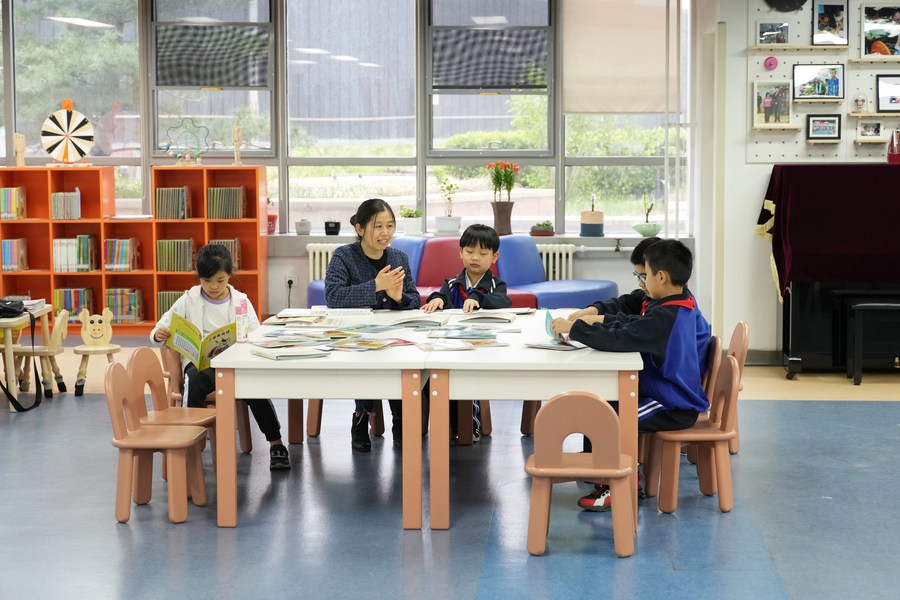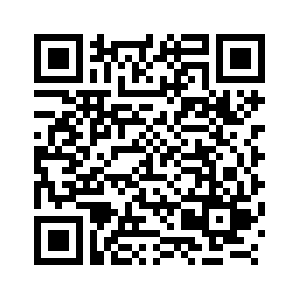* In east China's Zhejiang Province, more than 50 libraries have set up such reading rooms for visually impaired readers.
* Thanks to the rapid development of internet technology, the visually impaired now have easier access to smart communication tools. Smartphone voice assistance tools and a range of screen reading software have also contributed to making reading accessible for individuals with visual impairments.
* In May 2022, the Marrakesh Treaty to Facilitate Access to Published Works for Persons Who Are Blind, Visually Impaired or Otherwise Print Disabled, came into force in China. The treaty, the first and only human rights treaty with copyright, aims to eliminate copyright-related obstacles for print-disabled people in obtaining work.
HANGZHOU, April 23 (Xinhua) -- At first glance, this place looks like any other ordinary reading room of a library, surrounded by rows of bookshelves, tables, chairs and computers.
However, upon looking closely, a few details stand out, such as the larger-sized books, aisles paved with tactile paving and table corners with grooves designed for placing white canes, making it apparent the room is designed for the visually impaired.
In east China's Zhejiang Province, more than 50 libraries have set up such reading rooms for visually impaired readers.

Visually impaired children read braille books at the China Braille Library in Beijing, capital of China, April 20, 2023. (Xinhua/Cai Yang)
Throughout the past two decades, librarian Fang Jie, from Zhejiang Library, has witnessed considerable progress in eliminating barriers to reading for individuals with visual disabilities.
In the provincial public library, the reading area for the visually impaired readers has been expanded from a small corner to a 300-square-meter room, equipped with computers and smart audiobook devices.
"Reading is a source of comfort for individuals with visual impairments, offering solace to their souls in the darkness," Fang, 41, said.
"Living independently and exploring the world without obstacles is the common hope of every blind person. Digital technology is making this hope a reality," Fang added.
In Zhejiang Library, the number of braille books accounts for about 5 percent of the library's total collection.
"We offer free braille books to visually impaired individuals every year. We personalize the braille books according to their needs, utilizing our collection to create tailored reading material," Fang said, adding that the process usually takes a couple of months.

A visually impaired child reads a braille book at the China Braille Library in Beijing, capital of China, April 20, 2023. (Xinhua/Cai Yang)
Thanks to the rapid development of internet technology, the visually impaired now have easier access to smart communication tools. Smartphone voice assistance tools and a range of screen reading software have also contributed to making reading accessible for individuals with visual impairments.
Zhao Cheng, 37, lost his vision in a workplace accident. However, he didn't let his disability hinder his love for reading. He downloaded a reading app on his mobile phone and spends around 100 yuan (about 14.5 U.S. dollars) every year to access a range of audiobooks.
Zhao, who majored in intelligent control at college, now runs an AI company with his friends. He mainly works from home, writing program codes and conducting information accessibility tests for internet companies.
"Digital technology has opened a window for us to see the world, making up for the loss of vision for the blind, and helping us to adapt to life and live independently," Zhao said.

Wang Yufeng, visually impaired, reads with the help of a machine at a rehabilitation center in northwest China's Ningxia Hui Autonomous Region, April 22, 2022. (Xinhua/Feng Kaihua)
According to statistics from the China Association of Persons with Visual Disabilities, there are around 17 million people with visual disabilities across China.
To offer better reading services for the blind, in 2017, the Chinese government launched a "digital reading" promotion program for visually impaired people, offering audiobooks, electronic braille, and cultural services for the blind population through digital publishing and communication platforms and reading devices.
In May 2022, the Marrakesh Treaty to Facilitate Access to Published Works for Persons Who Are Blind, Visually Impaired or Otherwise Print Disabled, came into force in China. China is one of the first signatories to the treaty.
The treaty, the first and only human rights treaty with copyright, aims to eliminate copyright-related obstacles for print-disabled people in obtaining work.
"The treaty helps people like us have more access to cultural products," Zhao said.

A visitor experiences AI book reading in east China's Zhejiang Province, April 23, 2023. (Xinhua/Weng Xinyang)
The China Braille Press, a public welfare publishing house serving the visually impaired, has been making tremendous efforts to implement and promote the treaty.
"The manner in which individuals with disabilities are treated reflects the standards of public civility. Eliminating copyright-related obstacles for print-disabled people is a significant measure to protect the human rights of such people," said Huang Jinshan, president of the publishing house.
Fang expressed optimism about the future of individuals with visual disabilities in terms of their quality of life amid increasing societal efforts to eliminate reading barriers. "I hope all kinds of software or websites become more accessible and their optimization results in smoother functioning of screen-reading software."
(Video reporters: Zheng Mengyu; Video editors: Wu Yao, Luo Hui, Zheng Xin, Lin Lin) ■












